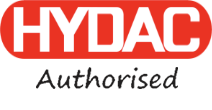Why Are Low-Level Alarms Important In Hydraulic Tanks?

Hydraulic systems are the lifeblood of much of your machinery. And as you know, they rely on hydraulic fluid to transfer power and provide precise movement. However, these systems only work properly when they have the ‘right’ fluid levels in the hydraulic tanks. This is where low-level alarms come in. Let’s look at the significance of low-level alarms in hydraulic tanks and why they’re so important.
1. System Reliability
Hydraulic systems operate under high pressure, and insufficient fluid levels can lead to severe performance issues. Low-level alarms act as an early warning system, alerting operators when fluid levels drop below a predefined threshold. By doing so, they help prevent:
Cavitation:
Low fluid levels can introduce air into the system, leading to cavitation, which can damage components like pumps and valves.
Overheating:
Insufficient fluid reduces the system's ability to dissipate heat, causing overheating that can degrade the fluid and damage components.
Loss of Power:
A lack of hydraulic fluid can compromise the system’s ability to generate the necessary force, leading to operational failures.
2. Safety
Low fluid levels can lead to sudden and unpredictable equipment failures, posing safety risks to operators and nearby personnel. For example, in construction equipment or aircraft, a loss of hydraulic power could result in catastrophic accidents. Low-level alarms provide real-time alerts, enabling operators to take immediate corrective actions to mitigate potential hazards.
3. Reduce Maintenance Costs
Regularly monitoring hydraulic fluid levels and responding promptly to low-level alarms can help prevent costly repairs and downtime. Components damaged due to insufficient lubrication or overheating can be expensive to replace. Additionally, addressing fluid level issues before they escalate can extend the lifespan of the entire hydraulic system.
4. Improving Operational Efficiency
A well-maintained hydraulic system operates more efficiently, consuming less energy and delivering consistent performance. Low-level alarms ensure that fluid levels remain within the optimal range, minimising disruptions and maintaining system efficiency. This is especially critical in industries like manufacturing, where downtime can lead to significant production losses.
5. Environmental and Regulatory Compliance
Leaks or insufficient fluid levels can result in environmental contamination if not addressed promptly. Low-level alarms help identify leaks early, allowing operators to take corrective action before the situation worsens. Additionally, many industries are subject to strict regulations regarding hydraulic system maintenance and environmental impact. Proper use of low-level alarms aids in compliance with these regulations.
6. Ease of Integration and Use
Modern low-level alarm systems are designed to be easily integrated into existing hydraulic setups. They often feature advanced technologies, such as wireless communication and real-time monitoring, making it easier for operators to track fluid levels and address issues proactively. These systems are highly reliable and require minimal maintenance, making them a cost-effective solution for ensuring system health.
Conclusion
Low-level alarms in hydraulic tanks are indispensable for maintaining the reliability, safety, and efficiency of hydraulic systems. By providing early warnings of potential issues, they help prevent costly repairs, ensure compliance, and safeguard the well-being of operators and equipment. As industries continue to depend on hydraulic systems for critical operations, the importance of investing in robust low-level alarm systems cannot be overstated. Regular monitoring and timely response to these alarms are essential practices for keeping your machinery going.




